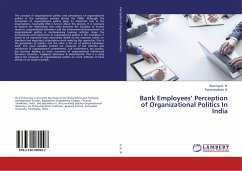The last two decades witnessed a resurgence of
interest in the concept of employee s workplace
participation. The changes that occurred in the
landscape of the British economy, in particular the
rapid spread of information technologies and
heightened international competitiveness, led to the
emergence of the participative management thesis.
It recognizes the dysfunctional effects of tight
surveillance of workers and emphasizes the importance
of involving employees in organisational
decision-making as a means of enhancing their work
motivation and performance quality. At the same time,
participation is also seen as of major importance for
employee well-being, as being able to exercise a
voice over workplace decisions is widely assumed to
contribute to workers sense of competence and
self-actualization. This study draws on two
large-scale UK national surveys to empirically assess the
trends, determinants and effects of British
employees organizational participation. By comparing
management data with employee data, it provides new
insights into whether participative management can
generate a win-win situation that benefits both
employers and employees.
interest in the concept of employee s workplace
participation. The changes that occurred in the
landscape of the British economy, in particular the
rapid spread of information technologies and
heightened international competitiveness, led to the
emergence of the participative management thesis.
It recognizes the dysfunctional effects of tight
surveillance of workers and emphasizes the importance
of involving employees in organisational
decision-making as a means of enhancing their work
motivation and performance quality. At the same time,
participation is also seen as of major importance for
employee well-being, as being able to exercise a
voice over workplace decisions is widely assumed to
contribute to workers sense of competence and
self-actualization. This study draws on two
large-scale UK national surveys to empirically assess the
trends, determinants and effects of British
employees organizational participation. By comparing
management data with employee data, it provides new
insights into whether participative management can
generate a win-win situation that benefits both
employers and employees.








